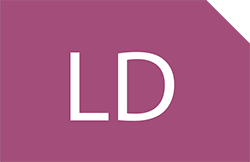Originally published on October 28, 2021 by National Council on Teacher Quality
A recent Education Week op-ed takes to task many of the advocates for the “science of reading,” asserting that they must share some of the blame for the reluctance on the part of many classroom teachers to adopt more effective methods of reading instruction.
Speaking to some of the pushback around the popular term “science of reading,” English learner expert and Stanford professor emeritus Claude Goldenberg contends it is the consequence of a number of differing interpretations of what constitutes the science of reading, including a view of what it takes to create a good reader that is far too narrow. In particular, those educators who teach English learners have raised concerns about what they see as an overemphasis on word recognition and decoding skills, while neglecting equally important skills related to oral language development, syntax, vocabulary, and comprehension (see examples of these concerns here and here).
These concerns are not wrong. For children to learn English as a second language—and indeed for all children to become good readers—there needs to be much more focus on oral language development than is common in today’s classrooms. For English learners, it requires explicit instruction in the letter sounds that are different from those in the first language, careful instruction in the syntax and spoken grammar of English, academic and general vocabulary, and continual exposure to rich content and conversation from the very start of school.
Read the full article on the National Council on Teacher Quality website.

